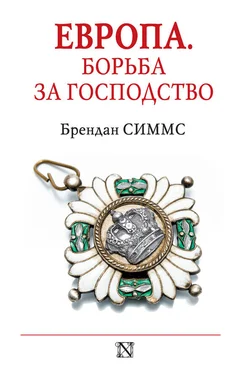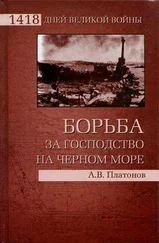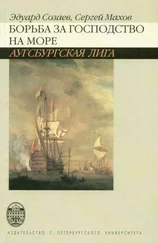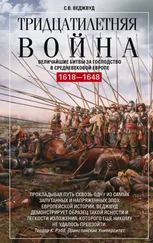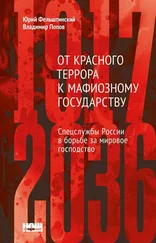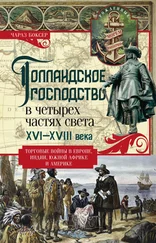Quoted in Externbrink, Friedrich der Grosse, Maria Theresia und das alte Reich. Deutschlandbild und Diplomatie Frankreichs im Siebenjährigen Krieg (Berlin, 2006), p. 316.
Quoted in L. Jay Oliva, Misalliance. A study of French policy in Russia during the Seven Years’ War (New York, 1964), p. 9.
Newcastle is cited in Reed Browning, The Duke of Newcastle (Cambridge, Mass., 1975), p. 182.
Reed Browning, ‘The Duke of Newcastle and the imperial election plan, 1749–1754’, Journal of British Studies, 7 (1967–68), pp. 28–47.
Richard L. Merritt, ‘The colonists discover America: attention patterns in the colonial press, 1735–1775’, William and Mary Quarterly, Third Series, XXI, 2 (April 1964), pp. 270–87, especially pp. 270–72.
Cited in Max Savelle, ‘The appearance of an American attitude toward external affairs’, American Historical Review, 52, 4 (1947), pp. 655–66 (quotation p. 660).
Quoted in Brendan Simms, Three victories and a defeat. The rise and fall of the first British Empire, 1714–1783 (London, 2007), p. 393.
Ibid., p. 391.
A. G. Olson, ‘The British government and colonial union, 1754’, William and Mary Quarterly, Third Series, XVII, 1 (1960), pp. 24–6 (quotation p. 26).
Fred Anderson, Crucible of war. The Seven Years War and the fate of empire in British North America, 1754–1766 (New York, 2000).
Frederick the Great, The history of my own times (1746). Posthumous works of Frederic II. King of Prussia (London, 1789), Vol. I, p. xx. I thank Ilya Berkovich for this reference.
Quoted in Tim Blanning, ‘Frederick the Great’, in Brendan Simms and Karina Urbach (eds.), Die Rückkehr der ‘Grossen Männer’. Staatsmänner im Krieg – ein deutsch-britischer Vergleich 1740–1945 (Berlin and New York, 2010), p. 18.
Frederick the Great, History of my own times, Vol. I, pp. 214–15.
Об изгнании аккадцев как “этнической чистке” см. Geoffrey Plank, An unsettled conquest. The British campaign against the peoples of Acadia (Philadelphia, 2001), pp. 140–57.
Quoted in H. M. Scott, The emergence of the eastern powers, 1756–1775 (Cambridge, 2001), p. 26.
Erich Everth, Die Öffentlichkeit in der Aussenpolitik von Karl V. bis Napoleon (Jena, 1931), pp. 355–60 (quotation p. 360).
D. A. Baugh, The global Seven Years War, 1754–1763. Britain and France in a great power contest (Harlow, 2011).
В отечественной историографии после С. М. Соловьева установилось обозначение «Клостерсевенское соглашение»: эту конвенцию подписали в Цевенском монастыре (клостере) . Примеч. ред.
Helmut Neuhaus, ‘Das Problem der militärischen Exekutive in der spätphase des Alten Reiches’, in Johannes Kunisch (ed.), Staatsverfassung und Heeresverfassung in der europäischen Geschichte der Frühen Neuzeit (Berlin, 1986), pp. 297–346 (quotations pp. 297 and 299).
Philip Carter, ‘An “effeminate” or “efficient” nation? Masculinity and eighteenth century social documentary’, Textual Practice, 11 (1997), pp. 429–43 (quotation p. 429).
Matthew McCormack, ‘The new militia: war, politics and gender in 1750s Britain’, Gender & History, 19 (2007), pp. 483–500 (quotation p. 497).
Erica Charters, ‘The caring fiscal military state during the Seven Years War, 1756–1763’, Historical Journal, 52 (2009), pp. 921–41, especially pp. 937–40 (quotation p. 939).
H. M. Scott, ‘The decline of France and the transformation of the European states system, 1756–1792’, in Peter Krüger and Paul W. Schroeder (eds.), The transformation of European politics, 1763–1848. Episode or model in modern history? (Oxford, 1996), pp. 105–28 (Voltaire quotation p. 114).
John Shovlin, The political economy of virtue. Luxury, patriotism and the origins of the French Revolution (Ithaca and London, 2006), pp. 54–5.
Quoted in Bailey Stone, The genesis of the French Revolution. A global-historical interpretation (Cambridge, 1994), p. 55. See also T. C. W. Blanning, The French Revolutionary Wars, 1787–1802 (London, 1996).
Brendan Simms, ‘William Pitt the Elder. Strategic leadership at home and abroad during the great war for the empires (1756–1763)’, in Simms and Urbach (eds.), Die Rückkehr der ‘Grossen Männer’, pp. 29–48, especially pp. 32–4.
Brendan Simms, ‘Pitt and Hanover’, in Brendan Simms and Torsten Riotte (eds.), The Hanoverian dimension in British history, 1714–1837 (Cambridge, 2007), pp. 28–57 (quotation p. 55).
«Сомнения и вопросы» ( фр .) . Примеч. ред.
Gary Savage, ‘Favier’s heirs: the French Revolution and the secret du roi’, Historical Journal, 41 (1998), pp. 225–58.
Hamish Scott, ‘The Seven Years War and Europe’s ancien régime’, War in History, 18 (2011), pp. 419–55.
Quoted in Hugh Ragsdale, ‘Russian projects of conquest in the eighteenth century’, in Ragsdale (ed.), Imperial Russian foreign policy (Cambridge, 1993), p. 76.
Quoted in Externbrink, Friedrich der Grosse, p. 339.
О кризисе французской аристократии после Семилетней войны: William Doyle, Aristocracy and its enemies in the Age of Revolution (Oxford, 2009), pp. 57, 83 and passim.
Gabriel B. Paquette, Enlightenment, governance and reform in Spain and its empire, 1759–1808 (Basingstoke, 2008).
J. H. Elliott, Empires of the Atlantic World. Britain and Spain in America, 1492–1830 (New Haven and London, 2006), p. 299.
D. R. Murray, ‘Statistics of the slave trade to Cuba, 1790–1867’, Journal of Latin American Studies, 3, 2 (1971), pp. 131–49. I am grateful to Carrie Gibson and Felicitas Becker for very useful conversations on this subject.
Evelyn Powell Jennings, ‘War as the “forcing house of change”: state slavery in late-eighteenth-century Cuba’, William and Mary Quarterly, Third Series, LXII (2005), 411–40.
Scott, Emergence of the eastern powers, pp. 76 and 79.
Manfred Schort, Politik und Propaganda. Der Siebenjährige Krieg in den zeitgenössischen Flugschriften (Frankfurt am Main, 2006), p. 463.
Hans-Martin Blitz, Aus Liebe zum Vaterland. Die deutsche Nation im 18. Jahrhundert (Hamburg, 2000), pp. 160–67 (quotation p. 165).
Читать дальше
Конец ознакомительного отрывка
Купить книгу
